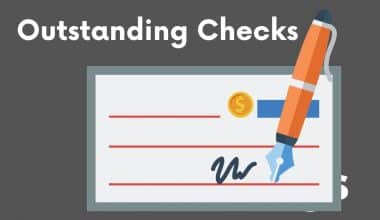Obtaining pre-seed capital for your startup might feel like a daunting task, particularly in a competitive environment like Nigeria. However, vital early-stage capital is frequently required to transform an idea into an actual product or service. I recall feeling the same way when I first looked into pre-seed funding. The uncertainty, the long nights spent refining the pitch deck, and the dread of rejection were all part of the process. But there is good news: pre-seed finance is now more available than ever. According to Disrupt Africa, African entrepreneurs raised more than $3 billion in 2022 alone, with Nigeria accounting for the majority of the funds. A major amount of investment came from pre-seed rounds, in which investors saw enormous promise in firms still in their infancy.
This post will lead you through the process of obtaining pre-seed funding for your firm, including real-life examples, critical ideas, and resources to help your funding journey go more smoothly.
What is Pre-Seed Funding?
Pre-seed funding is the initial round of money required to transform an idea into a marketable product or service. This stage often entails raising small amounts of capital to fund basic operational costs such as product development, market research, and early marketing activities.
For Nigerian businesses, this investment is critical because regular banking or venture capital funding may not be available at such an early stage. Angel investors, friends, family, and even grants are common sources of pre-seed finance.
How Can You Get Pre-Seed Funding for Startups in Nigeria?
#1. Utilize Personal Networks
One of the most readily available sources of pre-seed investment is frequently found inside your network—friends, family, and coworkers who know you well and believe in your idea. This is especially crucial in Nigeria, where traditional financial institutions are typically unwilling to make loans to early-stage firms that lack sufficient collateral or proven income. Given this, many Nigerian entrepreneurs begin by seeking small investments from their network.
How to Make it Work: Begin by identifying individuals in your network who may have the financial means to help. Make a compelling pitch deck or business plan that clearly outlines your idea, market opportunity, and how you intend to use the funds. The trick is to personalize your pitch, demonstrating to them how their investment may help you succeed. Even tiny contributions from multiple people can build up to significant pre-seed money, allowing you to cover early costs such as product development, marketing, and market research.
Example: I’ve witnessed several successful Nigerian entrepreneurs start their businesses with personal loans or contributions from family members. A financial company entrepreneur successfully funded ₦500,000 from friends and family by selling a basic and relevant business idea. This seed money assisted in the development of the Minimum Viable Product (MVP), which later attracted angel investors.
Tip: Always be open and honest with your network about how you want to spend the money, the risks involved, and the expected returns (if any). Honesty fosters trust, which is essential when raising cash from family and friends.
#2. Join Startup Incubators and Accelerators
Startup incubators and accelerators are excellent places to raise pre-seed capital while also receiving mentorship, industry connections, and company development assistance. Nigeria has a robust startup environment, with numerous accelerators and incubators that provide crucial assistance to early-stage businesses. These initiatives are intended to help companies navigate their early stages, giving resources that boost their chances of success.
Top Incubators & Accelerators in Nigeria: Some of the most noteworthy programs are CcHub, Lagos Innovates, GreenHouse Capital, and Startupbootcamp AfriTech. These organizations offer companies cash, mentorship, and strategic guidance to help them create their company model, marketing strategy, and operational structure. These initiatives provide pre-seed finance, which can range from minor grants to direct investments in exchange for equity.
In most situations, the investment comes with access to potential angel investors or venture capitalists, which increases your prospects of receiving additional funding in the future.
Example: One of Nigeria’s most well-known tech hubs, CcHub, has assisted countless entrepreneurs in obtaining pre-seed capital through its accelerator programs. For example, in 2018, a Nigerian health-tech firm secured $25,000 in pre-seed funding after participating in CcHub’s accelerator program, which provided not only capital but also excellent networking opportunities with local and international investors.
How to Apply and Maximize Opportunities:
These initiatives often require a sound business plan, a clear market potential, and, in some cases, an MVP. The application process can be competitive, so it’s critical to communicate how your firm is meeting a market need and what sets your service apart from competitors. Once accepted, make the most of the mentorship and networking possibilities available, as these can be just as beneficial as the grant itself.
Tip: When considering joining an accelerator, look beyond the monetary benefits. Mentorship, industry ties, and investor exposure sometimes have a greater long-term impact than original money. Make sure to use all available resources to expand your startup.
What Are Investors Looking for in Pre-Seed Funding?
#1. A Solid Founding Team
During the early phases, investors placed a high value on the founding team. They want to see if the people behind the startup have the necessary abilities, expertise, and desire to convert an idea into a successful business. Investors frequently wonder, “Can this team handle the challenges ahead?” They will determine if you have industry knowledge, technical expertise, or relevant business experience. Investors also seek for founders who are adaptive, resilient, and able to pivot as needed.
A strong founding team does not always imply a significant number of people. Instead, investors want to see how you and your co-founders complement each other’s skills. For example, one co-founder may thrive in product development while the other excels at marketing and business operations. My co-founder’s technical proficiency and our team’s ability to execute, not just my vision, impressed the investor during my initial pre-seed pitch. Make sure to highlight your team’s strengths, and don’t be afraid to acknowledge the problems you’ve conquered, since this demonstrates perseverance.
#2. Problem-Solution Fit
At the pre-seed stage, investors want to see that your startup solves a clear and compelling need. This is where the problem-solution fit becomes critical. Investors want to know that the problem your firm is addressing is real and important and that your solution is both practical and scalable. It is not enough to have an idea; you must demonstrate that your product or service provides a practical solution to a problem that impacts a large market.
Investors will want to know how well you understand your target market. This is when market research becomes critical. Can you demonstrate a demand for your product or service? Have you spoken with potential customers? Demonstrating a thorough awareness of your audience’s demands will make your pitch even more convincing. For example, if your firm focuses on fintech, investors will want to know how your solution simplifies financial processes for consumers, what makes it distinctive, and how it differs from other solutions on the market.
#3. A Prototype or MVP
Investors are always more confident in firms that have progressed past the idea stage and created a prototype or Minimum Viable Product (MVP). This demonstrates that you have taken specific actions to test your concept and validate your business model. Having a working prototype gives investors something practical to consider and displays your commitment to getting your concept to market.
An MVP does not have to be perfect; it simply needs to demonstrate that your solution is practical and addresses the primary issue. Investors at the pre-seed stage realize that your product is still in development, but they want confirmation that you have considered how to implement your idea. By having an MVP, you communicate that your startup has progressed beyond the “idea” stage and is ready to expand with the correct funding.
For example, if your firm is creating an app, even a simple version with important functions might show that your concept works. When I pitched my startup for pre-seed investment, having a basic MVP was a game changer. It enabled me to demonstrate to investors that my solution was more than simply theoretical—I could provide real-world data and user feedback to demonstrate market needs.
How Much Pre-Seed Funding Do You Expect to Raise?
The amount of pre-seed investment you can secure depends on your sector, region, and the strength of your idea. In Nigeria, pre-seed capital is typically between $10,000 to $150,000, while some firms may raise more depending on their company strategy and prospects.
According to the African Private Equity and Venture Capital Association, early-stage Nigerian entrepreneurs received $1.3 billion in funding in 2022, with pre-seed rounds accounting for a large share of the total. This illustrates investors’ increased interest in Nigerian entrepreneurs, particularly those in the technology, finance, and e-commerce industries.
What Are Some Alternatives to Pre-Seed Funding for Startups?
#1. Grants
If you work in agriculture or technology, there are several funding opportunities available in Nigeria. Organizations such as the Tony Elumelu Foundation and the African Development Bank provide funds to entrepreneurs operating in specific industries. These awards can act as pre-seed investments without requiring you to give up any equity.
#2. Crowdfunding
Platforms such as Kickstarter and Indiegogo enable entrepreneurs to raise small sums of money from a large number of people. While not commonly used in Nigeria, crowdfunding is becoming a popular alternative fundraising option, particularly for digital and creative enterprises.
#3. Angel Investors
Angel investors are wealthy individuals who invest in early-stage enterprises in return for stock. Nigeria has a burgeoning network of angel investors, especially in Lagos. Platforms such as the Lagos Angel Network can help you connect with investors seeking early-stage firms.
What Is the Ideal Technique to Approach Investors for Pre-seed Funding?
The most effective way to contact investors for pre-seed capital is with a well-prepared pitch that showcases your product, team, and market potential. Research possible investors and personalize your proposal to their interests. Networking at startup events, incubators, and online platforms such as AngelList can also help you locate the proper investors.
How Critical Is a Business Strategy for Obtaining Pre-seed Funding for Startups?
A business plan is essential at the pre-seed stage since it demonstrates to investors that you have a clear strategy for your startup’s growth. Even while pre-seed investors typically focus on the team and the idea, a well-thought-out business plan can help demonstrate how you intend to turn your vision into a viable firm.
Can I Receive Pre-seed Funding Without a Product or Prototype?
It is possible to secure pre-seed funding without a product, but having a prototype or Minimum Viable Product (MVP) greatly improves your chances. Investors desire to see real proof that your idea is feasible. Even a rudimentary version of your product helps validate your concept and demonstrates your readiness to proceed to the next level.
What Kind of Equity Do Investors Anticipate in Pre-seed Funding?
The quantity of stock granted in exchange for pre-seed funding is determined by the size of the investment and your startup’s valuation. Startups typically give away 10% to 25% equity during the pre-seed stage, although this can vary based on your negotiation strategy and the perceived value of your company.
Are There Any Other Sources of Pre-seed Funding Besides Investors?
Yes, you can look at different funding sources like as grants, crowdsourcing, and startup competitions. Grants, like those from the Tony Elumelu Foundation, provide non-dilutive finance, which means you don’t have to give up equity. Crowdfunding sites such as Kickstarter can also help raise donations from a larger audience.
Key Takeaways
- Use your network to raise early pre-seed investment from friends and family.
- Join incubators and accelerators such as CcHub or Lagos Innovates to gain pre-seed money and mentorship.
- Investors want to see a strong team and a good problem-solution fit, so express your strengths clearly.
- Grants and crowdsourcing provide additional funding options without having you give up equity.
- When reaching out to investors, use a clear, succinct email template to boost your chances of receiving an investment.
Conclusion
Obtaining pre-seed investment for your firm is frequently the first step towards making your vision a reality. You may help your startup succeed by leveraging personal networks, incubators, and internet venues. Beyond finance, it is critical to identify investors who believe in your vision and can help you overcome the hurdles ahead. With Nigeria’s thriving startup ecosystem, now is the ideal time to seek pre-seed capital and get your firm off the ground.
Are you prepared to take the initial steps toward obtaining pre-seed investment for your startup?
- FUNDRAISING FOR A BUSINESS: The Top 15+ Creative Ideas (Updated)
- How to Find Angel Investors for Your Startup
- PRODUCT DEVELOPMENT PROCESS: Definition, Steps & All to Know
- Business Incubators: What Is It, How to Start It & Examples
- PRODUCT DEVELOPMENT LIFECYCLE: Definition, Process & Stages






